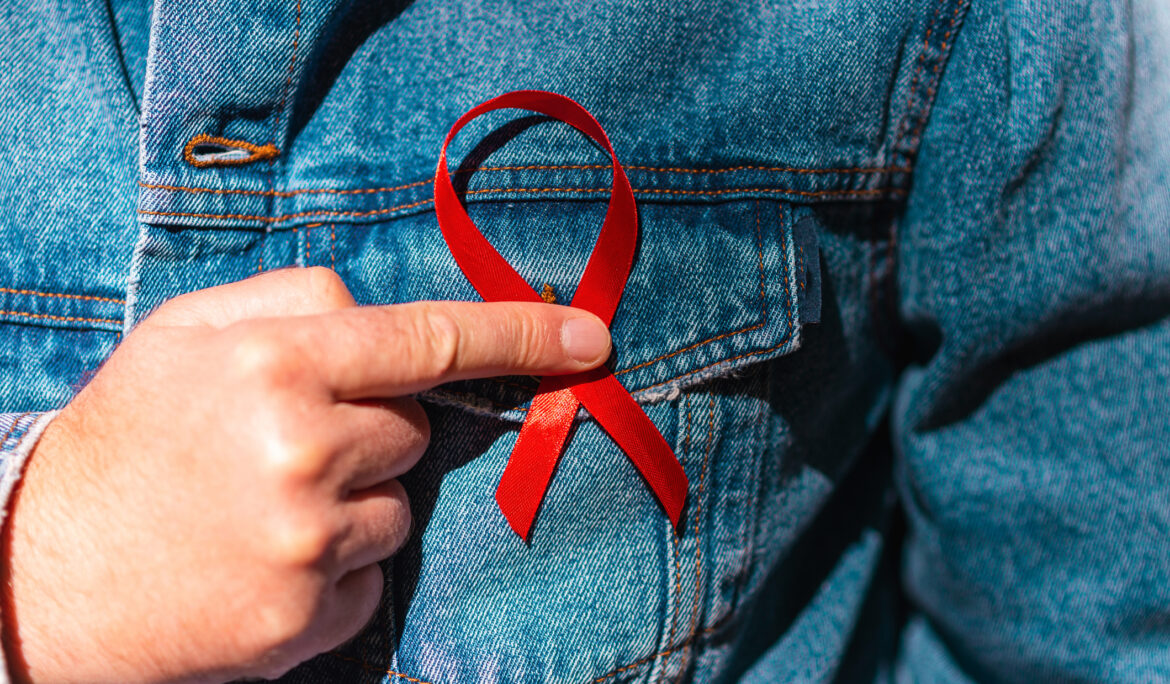Celebrating Pride Safely: Health Tips for LGBTQ+ Events
Pride events are vibrant celebrations of identity, resilience, and love. Whether you’re marching in a parade, attending a festival, or simply gathering with friends, these moments offer a powerful opportunity to express yourself and connect with your community. However, the excitement of Pride can sometimes overshadow important health and safety considerations. Here are several ways to protect your physical and mental well-being while ensuring an enjoyable and empowering Pride experience. Stay Hydrated and Beat the Heat Pride Month falls during the summer, meaning many events take place outdoors in high temperatures. Dehydration and heat exhaustion can sneak up quickly, especially …
Bringing Mental Health Awareness to the Community
On May 15, the Community Health Worker (CHW) Program partnered with PATH, a HIV Prevention Grant, and the AIDS Healthcare Foundation (AHF) for a Mental Health Awareness Month outreach event in fort Worth that reminded us all of the power of showing up, according to Tracy Harris, CHW program director. Set under a bright sky and a teal canopy, the CHW team engaged with more than 60 individuals from—offering conversation, education and connection around mental health, HIV/STI testing and substance use resources. It was a great day to be out in the community, and even greater to witness the honest, …
Mind Over Matter: How TBYS Supports Mental Health
May marks Mental Health Awareness Month, a time to highlight the importance of emotional well-being and open up conversations about mental health. At Think Before You Sleep (TBYS), we believe mental health is as vital as physical health. Whether you’re navigating high school pressures, college life, or early adulthood, your mental health deserves attention, respect, and support. Why Mental Health Deserves the Spotlight Mental health affects every aspect of your life—from handling stress to connecting with others. According to the Centers for Disease Control and Prevention (CDC), mental health “includes our emotional, psychological, and social well-being,” it plays a key role in how we …
Spring Break Safety: How to Have Fun Without Regrets
Spring Break is a time to let loose, soak up the sun, and take a well-earned break from school. But with all the excitement, it’s easy to overlook potential risks. Between alcohol, drugs, and casual encounters, it’s important to make choices that keep you safe and healthy. By taking simple precautions, you can enjoy every moment without unnecessary consequences. Drinking Responsibly For many, alcohol is part of the Spring Break experience. While there’s nothing wrong with celebrating, it’s important to do so in a way that doesn’t put you or your friends in danger. Know your limits and pace yourself—one …
Embracing Sobriety: A New Year’s Resolution to Quit Drugs and Alcohol
As we usher in the new year, many of us reflect on the past and contemplate resolutions for the future. For some, the journey to a healthier and happier life involves breaking free from the chains of drug and alcohol abuse. Quitting these substances can be an arduous task, but with the right resources and support, it is not only achievable but can also lead to a transformative journey towards sobriety. In this blog, we will explore the significance of resolving to quit drugs and alcohol and provide a list of rehabilitation centers in Tarrant County, specifically in Fort Worth, …
The Role of Self-Care in Substance Abuse Recovery
Substance abuse recovery is a challenging journey that requires a comprehensive approach to healing. While medical treatment and counseling play crucial roles, self-care is essential to enhance the recovery process significantly. Individuals can improve their mental and physical well-being by incorporating self-care practices, creating a foundation for long-term sobriety. This blog explores the importance of self-care in recovery, the various practices that support it, and the resources available for those seeking help. Why Self-Care Matters in Recovery Recovery from substance abuse is not just about abstaining from substances—it’s about rebuilding a healthy and fulfilling life. As researched and proven by the …
Understanding World AIDS Day and the Ongoing Fight Against HIV/AIDS
World AIDS Day, observed annually on December 1, serves as a global platform to raise awareness about the HIV/AIDS epidemic, honor those who have lost their lives, and unite efforts in combating the virus. Established in 1988, it was the first-ever international day for global health, highlighting the critical need for continued education and action. The Significance of World AIDS Day World AIDS Day provides an opportunity to reflect on the progress made in the fight against HIV/AIDS and acknowledge the challenges. It emphasizes the importance of protecting human rights as a fundamental component of an effective HIV response. The United …
Don’t Let Your Mental Health “Fall” This Season
College is a transformative time in a young adult’s life, filled with academic challenges, new social environments, and the pressures of managing personal responsibilities. However, one critical aspect often gets overlooked amidst the hustle and bustle of campus life: mental health. With 35% of college students reportedly diagnosed with anxiety and 27% with depression, the need to prioritize mental health has never been more apparent. Yet, many students fail to act, either unaware of the resources available or unsure how to begin. The Reality of Mental Health on Campus Balancing a heavy academic workload while maintaining a social life, personal responsibilities, …
Guiding with Compassion: Support Through Substance Abuse
Supporting a friend struggling with substance abuse is a delicate and challenging situation. Compassion and empathy are crucial when helping someone in this battle and understanding the signs of substance abuse is the first step. You can guide them toward recovery by recognizing these signs, approaching your friend carefully, and knowing how to offer support without judgment. Here’s how you can help a friend in need: Recognizing the Signs of Substance Abuse Substance abuse can manifest in various ways, and being aware of the signs can help you identify when a friend may be struggling. Common indicators include changes in …













